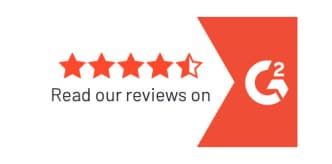If you’re a small-business owner wrestling with the decision about whether to offer your employees a 401(k) plan, we have some good news for you — some of the benefits of becoming a 401(k) plan sponsor include reducing your business’s tax liability. Additionally, your employees have flexibility to pay taxes either later, to lessen immediate tax burdens, or now, and let their money grow tax free.
Let’s take a look at how it works and what options you have as a small-business owner who wants to help their employees save more for a secure retirement and strengthen your business’s standing at the same time.
401(k) Plan Sponsor Options
Even if you aren’t a savvy financier, you are likely aware of the difference between traditional and Roth 401(k) plans. With a traditional 401(k) plan, employees (and business owners) make pre-tax contributions to their retirement accounts, putting off paying taxes on these earnings until they begin drawing on them after retirement. With a Roth 401(k), contributions are made after payroll taxes are taken out, meaning no taxes will be paid on these funds upon withdrawal. This second option is often more appealing to the youngest workers, who are likely to be in a higher tax bracket upon retirement, and thus stand to lose more to Uncle Sam. Regardless, there are pros and cons to each option for employees of every age.
Whether you handle your own payroll or you outsource this task to another company, it’s easy to get up and running with 401GO, and once you do, your job is done! 401GO provides seamless payroll integration, so once you finish setting up your 401(k) plan, you never have to think about it again. Our technology syncs with ADP, Rippling and all the leading payroll providers. Additionally, we offer True360 Integration for small-business owners who use smaller payroll platforms, and we provide the same great service for them.
Employers Can Save on Their Personal Taxes
Once you enroll with a 401(k) plan provider, you will be able to make contributions to your own personal 401(k) account as well. Even if you have an IRA, a 401(k) offers benefits you can’t get with an individual retirement account, not the least of which is the ability to contribute much more each year. Additionally, if you’re over 50, you can make catchup contributions so you can feather your nest a little more thickly as you glide toward retirement.
As the business owner, you have the ability to make the call about whether you offer a traditional 401(k), a Roth 401(k) or both (or a SEP or SIMPLE IRA), and you can choose the one(s) that suits your personal situation best. Prefer to make pre-tax contributions? Choose traditional. Want to pay your taxes now? Then a Roth is for you.
With a traditional 401(k), employers usually have to be careful about how much they are contributing to their personal 401(k) accounts in relation to how much their employees are contributing. The IRS has rules (surprise!) about the ratios in order to prevent employers and highly compensated employees from contributing large amounts to their personal accounts if no company matches are being made to other workers’ accounts. Some employers can get around this issue by sponsoring a Safe Harbor 401(k) instead. With this type of plan, businesses don’t have to submit to yearly government testing and audits to ensure fairness and equity, but they are required to make matching contributions to employee accounts.
Saving Tax Money on Employer Contributions
Not only can you save tax money on your own personal 401(k) account, but your matching contributions to employee accounts are tax-deductible as well. Although there is a limit to the total matching funds you can contribute and deduct on your taxes, some of the excess may be carried over to the next year.
Many small-business owners are thrilled to learn about these benefits, because they just lengthen the list of reasons to offer employees a 401(k) plan. You know that as your company grows and becomes more profitable, one of the best ways to secure and retain top talent is by offering better benefits than the next guy, and that includes a 401(k) plan, whether you make matching contributions or not.
If you’re on the fence about matching because you aren’t sure you can afford it, consider the tax deduction we mentioned above, plus the savings you get if you go with a Safe Harbor plan, meaning you won’t have to pay an auditor to conduct the tests others are required to undergo.
Other options include a SEP (Simplified Employee Pension) and SIMPLE IRAs. With either option, your contributions to your employees’ accounts are tax-deductible as with other types of retirement savings vehicles, but with a SIMPLE IRA, you must contribute equally to employees’ accounts and yours — no one can get a different percentage. With a SEP, employers are not required to contribute to workers’ accounts and employees can’t contribute to their own accounts either, but with a SIMPLE IRA, they can.
These types of retirement savings plan have had some popularity with small-business owners looking to avoid the administrative hassles that accompany opening and managing a 401(k), but 401GO has made many of these concerns moot. You can now become a sponsor for your company’s 401(k) plan in 15 minutes and never do another page of paperwork again (unless you want to make changes).
If you need some time to mull these options over or to consult with your financial advisor, give yourself a deadline for doing so — don’t put off this important move that will make such a difference in your life and the lives of your employees.



